|
Books Should Be Free Loyal Books Free Public Domain Audiobooks & eBook Downloads |
|
|
Books Should Be Free Loyal Books Free Public Domain Audiobooks & eBook Downloads |
|
Classics and Books from Antiquity |
|---|
Book type:
Sort by:
View by:
|
By: Charles Dickens | |
|---|---|
 Great Expectations
Great Expectations
From the opening passage itself of Great Expectations by Charles Dickens, the reader is drawn into the world of the hero, Pip, who is at that time, seven years old. The author creates an unforgettable atmosphere: the gloom of the graveyard, the melancholy of the orphan boy, the mists rising over the marshes and the terrifying appearance of an escaped convict in chains. Told in first person (one of the only two books that Dickens used this form for, the other being David Copperfield) Great Expectations is a classic coming of age novel, in which we trace the growth and evolution of Pip or Philip Pirrip to give his full name... | |
By: Homer | |
|---|---|
 The Odyssey
The Odyssey
A wandering king who's a war-hero doomed to roam the earth by a vengeful God, a plethora of fantastic experiences, a wife battling the invasion of suitors who wish to replace her missing husband, a son in search of his father - the Odyssey is a rich tapestry of incredible experiences and unforgettable characters. A must-read classic for anyone who wants to understand the fundamentals of Western mythology, it is a sequel to the Illiad which recounts the magnificent saga of the Trojan War. The Odyssey continues on, describing the trials and tribulations of the Greeks under the leadership of Odysseus... | |
By: Mary Wollstonecraft Shelley (1797-1851) | |
|---|---|
 Proserpine and Midas
Proserpine and Midas
| |
By: Anthony Trollope (1815-1882) | |
|---|---|
 Doctor Wortle's School
Doctor Wortle's School
Anthony Trollope’s fortieth novel, published in 1881, concerns a respectable Christian boys’ school whose proprietor unknowingly hires a woman who apparently has two husbands: A devoted English scholar and an abusive drunkard from the American south. The book interweaves a sensitive and realistic exploration of Dr. Wortle’s moral dilemma with a humorous look at small-town gossip and--of course--a romance involving the doctor’s beautiful young daughter. ( | |
By: Walt Whitman (1819-1892) | |
|---|---|
 Leaves of Grass
Leaves of Grass
Nearly 160 years after it was first published, Walt Whitman's Leaves of Grass continues to inspire, enthrall and educate generations of readers. This collection of poems serves as a vehicle for Whitman's philosophy, ideals, love of nature and mystical musings and it subsequently became one of the corner stones of American literature. Whitman was inspired to write Leaves of Grass based on Ralph Waldo Emerson's clarion call for a truly American poet who would tell of its glories, virtues and vices... | |
By: Plato (427BC - 347BC) | |
|---|---|
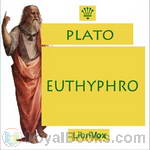 Euthyphro
Euthyphro
Awaiting his trial on charges of impiety and heresy, Socrates encounters Euthyphro, a self-proclaimed authority on matters of piety and the will of the gods. Socrates, desiring instruction in these matters, converses with Euthyphro, but as usual, the man who professes to know nothing fares better than the man who claims to be an expert. One of Plato’s well-known Socratic Dialogues, Euthyphro probes the nature of piety, and notably poses the so-called Euthyphro Dilemma: Do the gods love a thing because it is holy, or is a thing holy because it is loved by the gods? | |
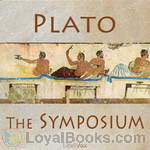 The Symposium
The Symposium
The Symposium (Ancient Greek: Συμπόσιον) is a philosophical book written by Plato sometime after 385 BCE. On one level the book deals with the genealogy, nature and purpose of love, on another level the book deals with the topic of knowledge, specifically how does one know what one knows. The topic of love is taken up in the form of a group of speeches, given by a group of men at a symposium or a wine drinking party at the house of the tragedian Agathon at Athens. Plato constructed the Symposium as a story within a story within a story... | |
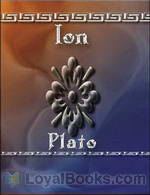 Ion
Ion
In Plato’s Ion, Socrates questions Ion on whether he should really claim laud and glory for his ‘rhapsodic’ recitals of Homer’s poetry. | |
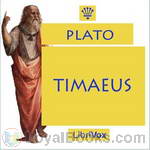 Timaeus
Timaeus
“Our intention is, that Timaeus, who is the most of an astronomer amongst us, and has made the nature of the universe his special study, should speak first, beginning with the generation of the world and going down to the creation of man…” ‘Timaeus’ is usually regarded as one of Plato’s later dialogues, and provides an account of the creation of the universe, with physical, metaphysical and ethical dimensions, which had great influence over philosophers for centuries following. It attributes the order and beauty of the universe to a benevolent demiurge – a ‘craftsman’ or god – fashioning the physical world after the pattern of an ideal, eternal one... | |
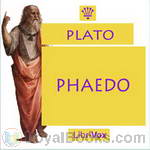 Phaedo
Phaedo
Plato's Phaedo is one of the great dialogues of his middle period, along with the Republic and the Symposium. The Phaedo, which depicts the death of Socrates, is also Plato's seventh and last dialogue to detail the philosopher's final days (the first six being Theaetetus, Euthyphro, Sophist, Statesman, Apology, and Crito).In the dialogue, Socrates discusses the nature of the afterlife on his last day before being executed by drinking hemlock. Socrates has been imprisoned and sentenced to death by an Athenian jury for not believing in the gods of the state and for corrupting the youth of the city... | |
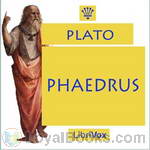 Phaedrus
Phaedrus
“For there is no light of justice or temperance, or any of the higher ideas which are precious to souls, in the earthly copies of them: they are seen through a glass, dimly…”Socrates and his earnest friend Phaedrus, enjoying the Athenian equivalent of a lunchtime stroll in the park, exchange views on love and on the power of words, spoken and written.Phaedrus is the most enchanting of Plato’s Erotic dialogues (capitalised in honour of the god). The barefoot philosopher urges an eager young... | |
By: Publius Cornelius Tacitus | |
|---|---|
 A Dialogue Concerning Oratory, or the Causes of Corrupt Eloquence
A Dialogue Concerning Oratory, or the Causes of Corrupt Eloquence
The scene of the Dialogus de Oratoribus, as this work is commonly known, is laid in the sixth year of Vespasian, 75 a.D. The commentators are much divided in their opinions about the real author; his work they all agree is a masterpiece in the kind; written with taste and judgement; entertaining, profound, and elegant. It is normally considered to have been written by Tacitus, even though some ascribe it to Quintilian. The main subject is the decadence of oratory, for which the cause is said to be the decline of the education, both in the family and in the school, of the future orator. In a certain way, it can be considered a miniature art of rhetoric. | |
By: Flavius Josephus (37 - c.100) | |
|---|---|
 The Antiquities of the Jews
The Antiquities of the Jews
Antiquities of the Jews was a work published by the important Jewish historian Flavius Josephus about the year 93 or 94. It is a history of the Jewish people, written in Greek for Josephus' gentile patrons. Beginning with the creation of Adam and Eve, it follows the events of the historical books of the Hebrew Bible, but sometimes omits or adds information.Volume 1 contains Books 1-5 and ends with the dedication of Samuel and death of Eli the priest. | |
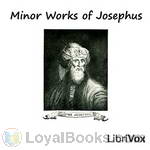 Minor Works of Josephus
Minor Works of Josephus
There are 3 parts to this collection.(1) Against Apion is a two-volume defense of Judaism as classical religion and philosophy, stressing its antiquity, as opposed to what Josephus claimed was the relatively more recent tradition of the Greeks. Some anti-Judean allegations ascribed by Josephus to the Greek writer Apion, and myths accredited to Manetho are also addressed.(2) Discourse To The Greeks Concerning Hades describes the author's views on the afterlife against the prevailing view of the "Greeks" (i... | |
By: John Kendrick Bangs (1862-1922) | |
|---|---|
 Olympian Nights
Olympian Nights
| |
By: Publius Vergilius Maro (70 BC - 19 AD) | |
|---|---|
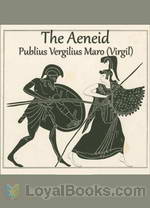 The Aeneid
The Aeneid
The Aeneid is a Latin epic written by Virgil in the 1st century BC that tells the legendary story of Aeneas, a Trojan who traveled to Italy, where he became the ancestor of the Romans. The first six of the poem’s twelve books tell the story of Aeneas’ wanderings from Troy to Italy, and the poem’s second half treats the Trojans’ ultimately victorious war upon the Latins, under whose name Aeneas and his Trojan followers are destined to be subsumed. The poem was commissioned from Vergil by the Emperor Augustus to glorify Rome... | |
 The Eclogues
The Eclogues
This book of poems, written between 42 en 39 BC, was a bestseller in ancient Rome, and still holds a fascination today. Held to be divinely inspired not only by the Romans themselves, but by the Medieval Catholic church, The Eclogues is one of the most beloved collections of Latin short poetry. | |
By: Thomas Bulfinch (1796-1867) | |
|---|---|
 Bulfinch's Mythology: the Age of Fable
Bulfinch's Mythology: the Age of Fable
| |
By: William Morris (1834-1896) | |
|---|---|
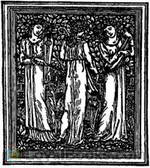 The Earthly Paradise
The Earthly Paradise
| |
By: Friedrich Wilhelm Nietzsche (1844-1900) | |
|---|---|
 Homer and Classical Philology
Homer and Classical Philology
| |
 We Philologists Complete Works of Friedrich Nietzsche, Volume 8
We Philologists Complete Works of Friedrich Nietzsche, Volume 8
| |
By: Samuel Butler (1774-1839) | |
|---|---|
 The Atlas of Ancient and Classical Geography
The Atlas of Ancient and Classical Geography
| |
By: Sophocles (495-406 BC) | |
|---|---|
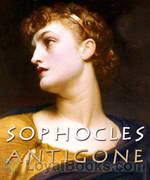 Antigone
Antigone
This is the final installment in Sophocles's Theban Plays, following Oedipus Rex and Oedipus at Colonus. Oedipus's daughter Antigone deliberately breaks the laws of Thebes when she buries her brother's body and is sentenced to death. She clashes with Creon, the King of Thebes, over what constitutes justice and morality: the laws of the state or the laws of the individual. | |
 Electra
Electra
Sophocles' play dramatizes the aftermath of Agamemnon's murder by his wife Clytemnestra and her lover Aegisthus. His daughter Electra is hungry for revenge and longs for the return of her brother Orestes to help her achieve her ends. | |
By: Marcus Tullius Cicero | |
|---|---|
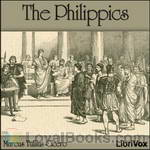 The Philippics
The Philippics
A philippic is a fiery, damning speech delivered to condemn a particular political actor. The term originates with Demosthenes, who delivered an attack on Philip II of Macedon in the 4th century BCE.Cicero consciously modeled his own attacks on Mark Antony, in 44 BC and 43 BC, on Demosthenes’s speeches, and if the correspondence between M. Brutus and Cicero are genuine [ad Brut. ii 3.4, ii 4.2], at least the fifth and seventh speeches were referred to as the Philippics in Cicero’s time. They were also called the Antonian Orations by Aulus Gellius... | |
By: Phaedrus (c. 15 BC - c. AD 50) | |
|---|---|
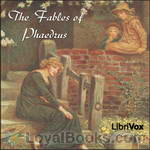 The Fables of Phaedrus
The Fables of Phaedrus
The fable is a small narrative, in prose or verse, which has as its main characteristic the aim of conveying a moral lesson (the “moral”), implicitly or, more normally, explicitly expressed. Even though the modern concept of fable is that it should have animals or inanimated objects as characters – an idea supported by the works of famous fabulists such as Aesop and La Fontaine – Phaedrus, the most important Latin fabulist, is innovative in his writing. Although many of his fables do depict animals or objects assuming speech, he also has many short stories about men, writing narratives that seem to the modern eye more like short tales than fables... | |
By: Xenophon | |
|---|---|
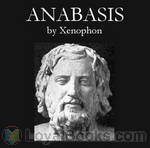 Xenophon's Anabasis
Xenophon's Anabasis
Xenophon the Athenian was born 431 B.C. He was a pupil of Socrates. He marched with the Spartans, and was exiled from Athens. Sparta gave him land and property in Scillus, where he lived for many years before having to move once more, to settle in Corinth. He died in 354 B.C. “Anabasis” is a Greek work which meane “journey from the coast to the center of a country.” This is Xenophon’s account of his march to Persia with a troop of Greek mercenaries to aid Cyrus, who enlisted Greek help to try and take the throne from his brother Artaxerxes, and the ensuing return of the Greeks, in which Xenophon played a leading role... | |
By: Padraic Colum (1881-1972) | |
|---|---|
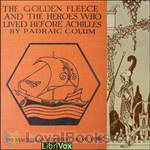 The Golden Fleece and the Heroes Who Lived Before Achilles
The Golden Fleece and the Heroes Who Lived Before Achilles
This is Irish folklorist Padraic Colum's masterful retelling of many Greek myths, focusing on Jason and the Argonauts' quest to find the Golden Fleece. He also includes the stories of Atalanta, Heracles, Perseus, Theseus, and others. | |
By: Titus Lucretius Carus (94? BC - 49? BC) | |
|---|---|
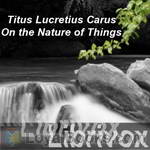 On the Nature of Things
On the Nature of Things
Written in the first century b.C., On the Nature of Things (in Latin, "De Rerum Natura") is a poem in six books that aims at explaining the Epicurean philosophy to the Roman audience. Among digressions about the importance of philosophy in men's life and praises of Epicurus, Lucretius created a solid treatise on the atomic theory, the falseness of religion and many kinds of natural phenomena. With no harm to his philosophical scope, the author composed a didactic poem of epic flavor, of which the imagery and style are highly praised. | |
By: Euripides (480-406 BC) | |
|---|---|
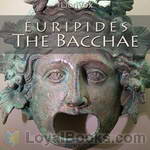 The Bacchae
The Bacchae
This tragedy is based on the mythological story of King Pentheus of Thebes and his mother Agave, and their punishment by the god Dionysus (who is Pentheus' cousin) for refusing to worship him. | |
By: Valmiki | |
|---|---|
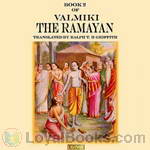 The Ramayana Book 2
The Ramayana Book 2
The Ramayana is an ancient Sanskrit epic. It is attributed to the Hindu sage Valmiki and forms an important part of the Hindu canon (smṛti). The Ramayana is one of the two great epics of India, the other being Mahabharata. It is the story of Rama, who emabrks on an epic journey followed by the fight with Ravana, the demon king who abducted Rama's wife, Sita. The epic depicts the duties of relationships, portraying ideal characters like the ideal servant, the ideal brother, the ideal wife and the ideal king. (Introduction by Om123) | |
By: Aristophanes (446BC - 385BC) | |
|---|---|
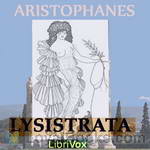 Lysistrata
Lysistrata
Lysistrata read by the Classics Drama Company at DePaul. The Classics Drama Company at DePaul is a new gathering of Thespians and Classicists dedicated to performing and understanding ancient literature. If you live in Chicago and attend DePaul University, we welcome new additions to our group. Contact Dr. Kirk Shellko (kshellko@depaul.edu), if interested.First performed in classical Athens c. 411 B.C.E., Aristophanes’ Lysistrata is the original battle of the sexes. One woman, Lysistrata, brings together the women of all Greece, exhorting them to withhold sexual contact from all men in order that they negotiate a treaty... | |